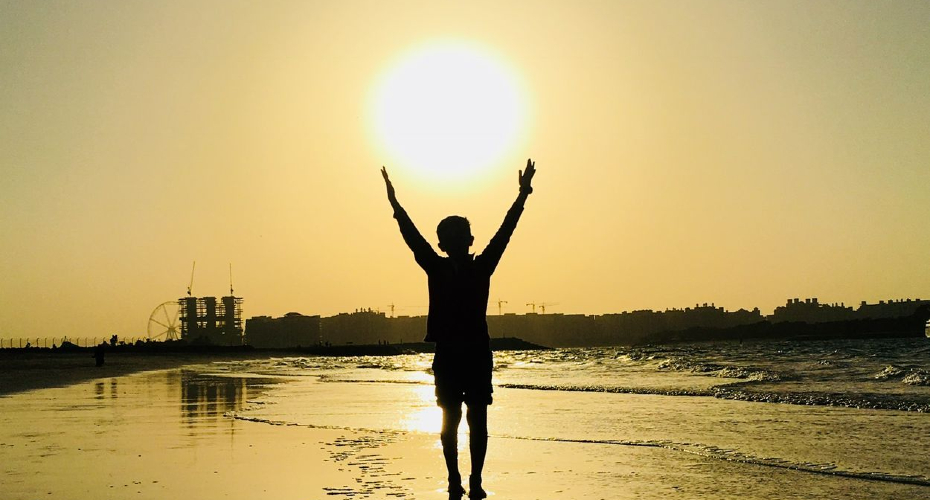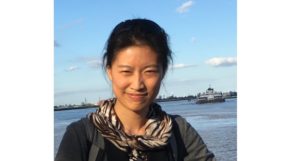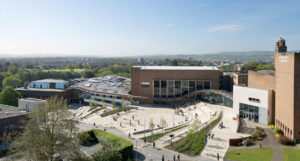International climate champions lead poetic call for change as COP28 opens

Climate champions, campaigners, and artists are among those who have lent their voices to record We Are the Possible: 12 Poems for 12 Days of COP28 to inspire a greener, healthier, and fairer world as the global climate conference gets underway in the United Arab Emirates.
With a foreword by Christiana Figueres, co-host of the podcast Outrage and Optimism and former Executive Secretary of the United Nations Framework Convention on Climate Change, the poems of We Are The Possible will be released digitally on each day of the conference to draw attention to the plight of the planet.
Also featuring the likes of Surfers Against Sewage founder Hugo Tagholm and marine biologist-turned-filmmaker Tom Mustill, We Are The Possible is led by the University of Exeter and has been co-created through a unique editorial process, weaving together the voices of 200 scientists, artists, educators, health experts and youth leaders.
The anthology, which has been published in English and Arabic, is being taken to COP28 to be shared with policy-makers and an international audience. It also underpins a rich cultural programme of events being staged at COP’s Blue and Green Zones, Mohammed bin Rashid Library and the Eithad Museum in Dubai. These include high-level panel discussions, theatrical performances, live music and soundscapes, creative workshops for children and teachers, and the launch of We Are The Ocean – the first co-created bilingual anthology of children’s poetry between the UK and UAE, in partnership with the Emirates Literature Foundation.
“By linking science, health, education, and the arts through storytelling, we can co-create new narratives that provoke empathy and spark the imagination to envision new possibilities” says Director Cecilia Mañosa Nyblon. “At this pivotal time in our planet’s history, it has never been more urgent to work collaboratively, across generations, and boundaries. We Are The Possible’s programme is testament to the power of partnerships in action and that we all have agency to forge a greener, healthier, and fairer world. We are honoured that Interstellar, the first poem in the collection, is read by renowned champion in global climate leadership, Christiana Figueres.”
Ms Figueres served as Executive Secretary of the United Nations Framework Convention on Climate Change (UNFCCC) from 2010 to 2016, directing successful Conferences of the Parties in Cancun, Durban, Doha, Warsaw, and Lima, culminating in the historic Paris Agreement of 2015.
In her foreword for the anthology, Ms Figueres wrote: “I have spent years persuading and negotiating for climate action based on the science and data. And, while this remains vital, I have also realised that connecting with people from the heart and with love is the most powerful place to start. We Are The Possible offers a beautiful set of poems, songs, plays, paintings and it has connected schools across our oceans to find common ground: namely our love and desire to protect our home and only planet. Let the stories of beauty, hope and action shape your story and the difference you make in the world.”
The creation of the anthology follows a unique collaborative methodology,” says Dr Sally Flint, the Creative Lead for We Are the Possible. “The anthology is structured into three acts: Planet Earth, Planet People, and Planet Ocean and shows how we are all connected via nature, our ancestors and descendants. The anthology concludes with An Appendix of Hope, listing positive climate actions aligned to each poem.”
We Are The Possible’s partners include the Emirates Literature Foundation, BIMM Institute, the University of Khorfakkan, the Theatre of Others, Art for All, and a network of schools in UAE and UK. It is funded by the British Embassy Gulf Strategy Fund, Met Office (UK), UK Research and Innovation, and the University of Exeter, and the British Council Creative Commissions.
It is part of the University’s Green Futures campaign, which includes the Global Carbon Budget, and the launch of the first ever Global Tipping Points Report. For more information, visit the GreenFutures website.
Christiana Figueres’ recording can be accessed online.



